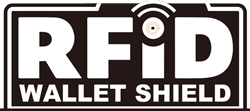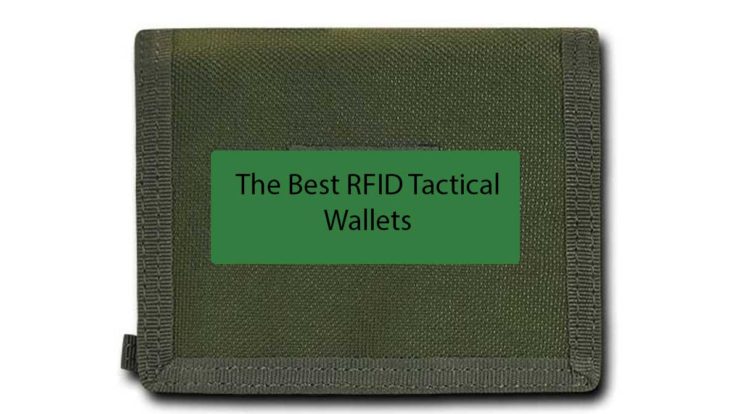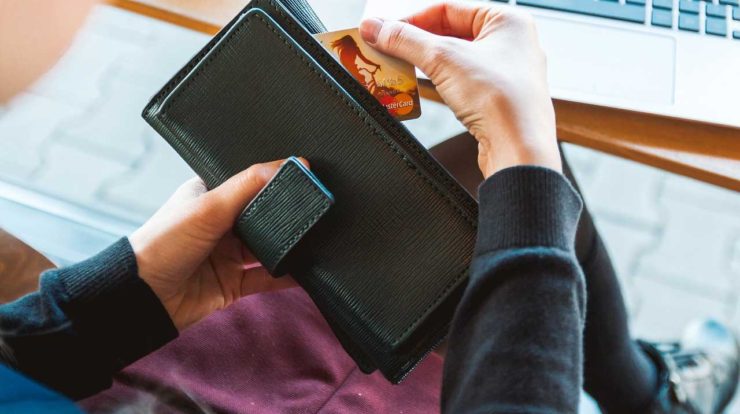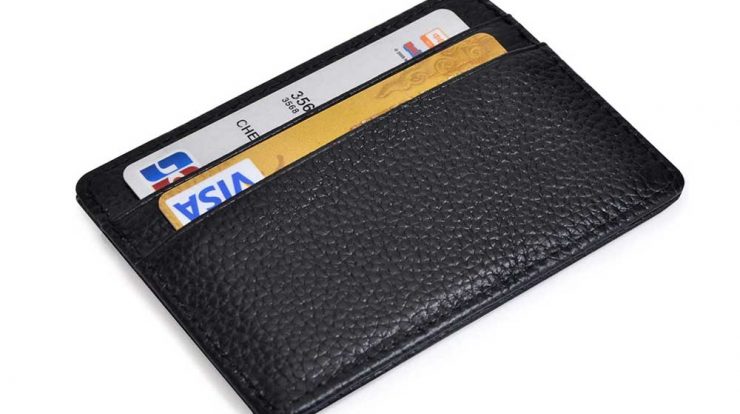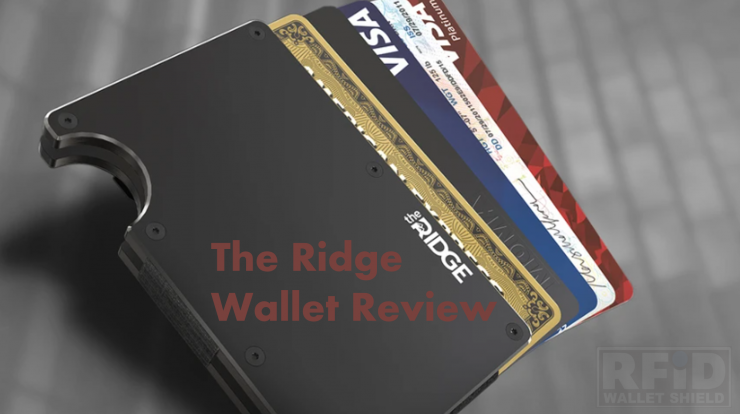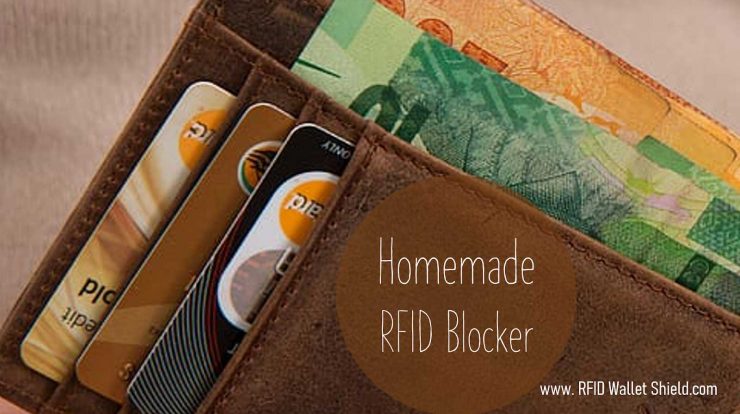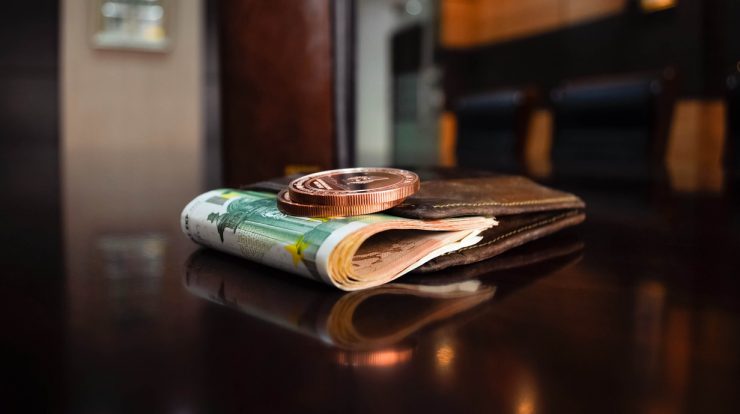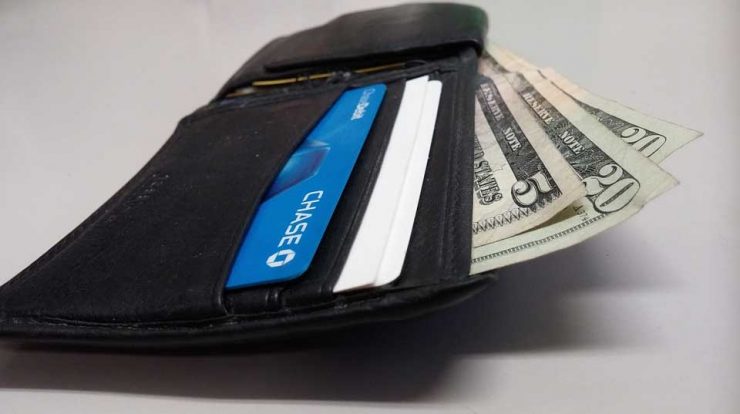
Are RFID Wallets Necessary? In a world where cyber criminality is growing exponentially, most would agree that yes, they are. Unfortunately, most would be wrong.
I don’t know about you, but it seems to me that buying a wallet used to be a lot easier, especially for us guys. We pretty much had the choice between bi-fold wallets or trifold wallets and whether we wanted ours to be made of good old leather or a synthetic material. That was it, end of story.
Today, however, that’s simply not the case. I was looking for a new wallet the other day on Amazon (where else, am I right?) and nearly every single one that I saw, without exaggeration, offered an extra feature; RFID blocking.
I was intrigued. I’d heard about RFID skimmers but, to be perfectly honest, I’ve had the same leather bifold wallet for almost a decade (no joke) and had no idea that wallets with RFID blocking tech had become so popular.
So I decided to take a deeper look to decide whether I needed one and, more importantly, if they were truly necessary and did what all of their manufacturers promised.
What I found is that, yes, they do work but no, you really don’t need them. Like, at all. They’re virtually worthless as far as protecting your data is concerned. Let me explain…
Are RFID Wallets Necessary? RFID wallets, sleeves and clothing are not necessary, they are a security smoke and mirrors, a magician trick. You don’t really need RFID protection because there isn’t any reported RFID crime. Or maybe not yet!
Furthermore, RFID-related crime isn’t only very unlikely, it’s non-existent, based on my research. If you want a purely RFID Wallet, I can show you how to make one simply at home.
However, RFID blocking wallets looks really good from a design perspective. Maybe because we pay a premium for them, who knows?
What is RFID?
Developed during World War II, Radio Frequency Identification or RFID was used to identify airplanes by the military and determine if they were ‘friendly’ or not. (Those that were ‘not’ were usually blasted out of the sky.)
RFID, in basic terms, is a form of wireless communication and today it has been refined to the point where it’s being used in credit cards, passports and many other items in the form of tiny ‘chips’.
Stores worldwide use RFID chips to prevent shoplifting and help with inventory control.
If you have a credit card (or, like me, a bunch of them) it’s almost definitely got an RFID ‘chip’ on the front, and if you’ve updated your passport in the last 13 years or so, it has an RFID chip as well, right on the front.
It’s there so that your credit card or passport can be easily scanned and give relevant data to, say, the kiosk at the airport you’re traveling through or the barista at Starbucks when you pay for your double mocha whatchamacallit coffee.
RFID ‘Skimming’
OK, so we know your credit card and passport have these little RFID chips that send out data. The theory behind RFID blocking wallets is that, if that data can be read, it can be stolen, and all a tricky criminal would need is an RFID reader to do it, skim your credit card data and go on a spending spree at the local mall.
When RFID chips first started being used, security researchers were quick to sound the alarm, warning consumers that their sensitive data was at risk due to new chips. Those warnings led to an entirely new industry; RFID blocking wallets, purses, bags, even RFID blocking clothing.
The reality? Since the use of RFID chips started being implemented in the mid-2000s, you’d be hard-pressed to find any reports of actual data or identity theft being pulled-off by a criminal who’s stolen data using an RFID reader. None. Zero. Zilch. (Go ahead, Google it, I’ll wait.)
From the research I did, it seemed to me that RFID skimming was much more popular as a talking point or an alarming headline than an actual technique being used by thieves.
But that didn’t stop the manufacture of RFID blocking technology including wallets, by dozens of companies. (Modern-day snake oil salesmen?)
Why Isn’t RFID Skimming a Big Problem?
Here’s the thing; the information stored on an RFID chip, and the way that it’s being transferred from chip to receiver, has almost completely changed. In fact, the information that’s stored on an RFID chip today isn’t nearly enough to actually complete a purchase transaction (and likely never was).
Today, when a transaction is being made with a credit card, the RFID chip transmits a one-time code. It doesn’t contain your home address, it doesn’t have your name and, most importantly, it doesn’t have the 3-digit CVV code that’s on the back of your card.
Sure, a thief might be able to skim the tiny bit of info that is there, but they’d never get enough data to then go and make a purchase.
The same goes for your passport. All the info on it is encrypted and can’t be read by anyone without an authenticated reader. Even more, the chip can’t be read if the passport is closed and, since 2007, all US passports have come with an RFID-blocking cover. (Yep, it’s already built right in!)
Also, RFID tech is slowly being phased out as a newer tech called EMV (Europay, Mastercard & Visa) is phased in. EMV is much less vulnerable, although not perfect.
EMV is based upon a technical standard for smart payment cards, used for payment at terminals and automated teller machines which can accept them.
EMV cards are called chip cards which store data on integrated circuit chips. These include cards that must be physically inserted into a reader, as well as contactless cards that can be read over a short distance using near-field communication technology.
Payment cards which comply with the EMV standard are often called Chip and PIN or Chip and Signature cards, depending on the authentication methods employed by the card issuer, such as a personal identification number (PIN) or digital signature.
In February 2010, computer system researchers from Cambridge University showed that an execution of EMV PIN entry is susceptible to a man-in-the-middle attack however just applications where the PIN was confirmed offline were susceptible.
And, just FYI, an RFID blocking wallet is considered to be completely useless with this new tech. If you live in Europe, they have what is known as contact less cards. This allows you to touch on a card reader to pay for goods and services under a certain value without ever entering your pin.
There is a real risk there, a scammer can skim your card without your knowledge. The only good thing is that the amount that they can take is limited. The amounts taken have to go to a real account, therefore the criminals will more than likely be caught.
However, it would be hard to prove that they did anything since it may be a business account and anyone can purchase from the company.
These crimes may be reported but not pursued because it is hard to prove and would be a waste of police’s time – the amount is miniscule, it is not cost effective for them to pursue the skimmers.
One last thing to consider if you’re still not convinced of this happening to you; in the (very) unlikely event that your credit card was skimmed and then used, credit card companies by law have to protect you and you’ll never lose a cent.
What Should You Worry About?
If you really want to protect yourself, and your data, from being hacked, stolen and used to make purchases or steal your identity there are a few other scams that you really should be worried about. Below are two of the worst.
Are RFID Wallets Necessary: Public WiFi
When using public Wi-Fi in, say, your local cafe, a hacker can position themself between you and the connection. You send out your data thinking it’s going to the hotspot but, instead, it’s going right to them. They can also use an unsecured connection to plant malware on your computer, or even hack the hotspot itself. Scary stuff. To protect yourself;
- Use a VPN
- Use SSL Connections
- Turn Off Sharing
- Turn off WiFi when you don’t need it
- Use security software
ATM and Point-of-Sale Skimmers
Scammers will plant a skimmer in an ATM or POS machine, where they can steal much more information. This is a much bigger problem than RFID skimming of a CC in your wallet or your passport. To protect yourself;
- Don’t use outdoor ATMs
- Cover your PIN when using your CC
- Check the ATM for any signs of tampering
- Stay in view of other people when using your CC at an ATM
Are RFID Wallets Necessary: Should I Get One?
If you aren’t 100% sure that you’ll require a wallet with RFID Wallet Shield, there is no damage in getting one anyway. Ultimately, it is your option to choose whether to purchase into the story of RFID-blocking wallets.
If you believe that having an RFID-blocking wallet will secure both the important cards in your wallet and give you peace of mind then go ahead.
Though the experts say that RFID blocking gear is a solution to a problem that doesn’t exist, have the experts ever been wrong before? I think so and on many occasions. So I guess, you can protect yourself continually, or wait until there is a problem to start protecting yourself. Maybe now is the quiet before the storm.
If you believe there is a possibility that you might have your card details taken in a skimming scenario. Regardless of proof that the crime is currently unlikely, we have simply one easy concern: Why not get one for peace of mind?
Stop stressing over purchasing a piece of gear that might secure your details by keeping them beyond the grasp of criminals..
Even if you do not definitely require an RFID wallet, there’s no reason why you shouldn’t get one for security of the mind. One less thing to worry about.
In Conclusion
Are RFID Wallets Necessary? The truth is, while the RFID wallet manufacturers tout the effectiveness of their wallets, they’re selling you a solution to a problem that simply doesn’t exist, said the security experts.
If you want to get one and spend the extra cash feel free but, for me, I’d rather spend my money on something that protects me from an actual threat. If the RFID wallets are beautifully designed and come with the added feature of RFID blocking, I would definitely get it everytime.
Even though there is no real threat now, who knows about the future? We recommend that you purchase one if it is beautiful and have the features that you like plus have the RFID blocking protection, just for peace of mind.
I want to be upfront with you, I may get credit for qualifying sales on Amazon when you purchase through any of my Amazon links. We trust Amazon, where else are we going to buy awesome products?
